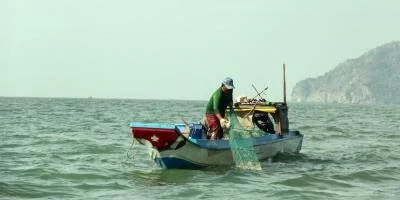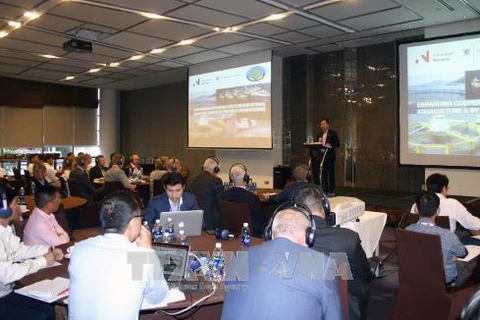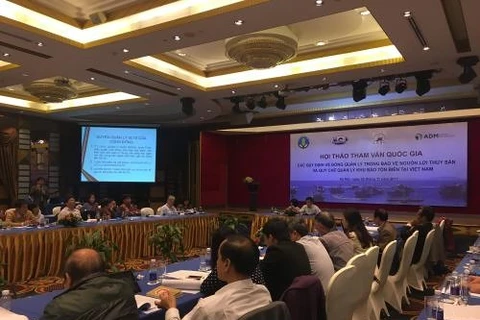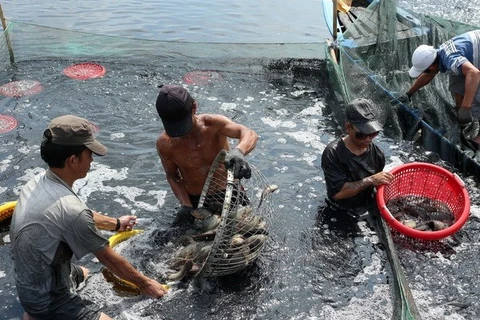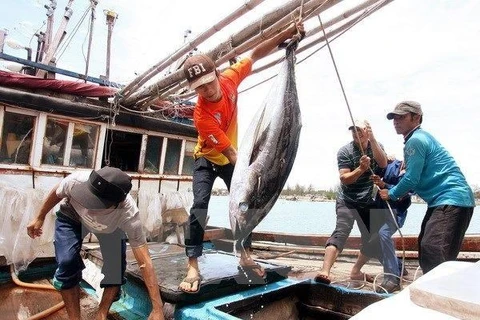Hanoi (VNA) –Vietnam has become one of the top five exporters of aquatic products in the world thanks to the development of the fisheries sector over the past years.
With a coastline of over 3,260km, Vietnam’s waters are home to over 2,000 marine species with annual total fishing capacity of 2 million tonnes. Statistics showed that offshore and inshore fishing catches grow by 5 percent annually on average, reaching an estimated 3.1 million tonnes last year and 3 million tonnes in the first 11 months this year.
As of the end of 2016, the country registered nearly 110,000 fishing vessels, including over 2,800 logistics vessels and 31,000 ships with capacity of more than 90CV.
Aquaculture also saw rapid growth, with total output rising to 3.6 million tonnes in 2016 from 3.5 million tonnes in 2015. In the Jan-Nov period this year, the figure was more than 3.4 million tonnes, contributing to poverty reduction and job creation.
Export of aquatic products has increased strongly over recent years with an annual growth of 15.6 percent. From 550 million USD in 1995, export value rose to 7.8 billion USD in 2014. After declining to 6.7 billion USD in 2015, 7.05 billion USD in 2016 due to market difficulties, the value topped 7.5 billion USD in the first 11 months this year.
Vietnam currently ships aquatic products to over 150 markets, with the main markets being the US, Japan, China and the Republic of Korea.
The country’s participation in many trade deals is expected to bring more opportunities for domestic aquatic products and enhance their competitiveness thanks to incentives and preferential tariff while domestic firms will improve manufacturing chain and added value.
Under the master plan on Vietnam’s fisheries sector to 2020 with vision to 2030, Vietnam will build six large-scale fisheries centres in the northern port city of Hai Phong, the central city of Da Nang and province of Khanh Hoa, the southern provinces of Ba Ria – Vung Tau and Kien Giang, and the Mekong Delta city of Can Tho, each of them is closely associated with key fishing grounds.
Solutions proposed for the fisheries sector’s sustainable development include investing in infrastructure and fishing vessels, modernizing aquaculture techniques, and promoting mechanisation and automation in processing to improve export value.-VNA
VNA

